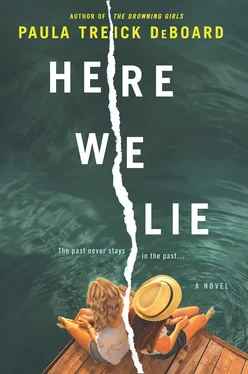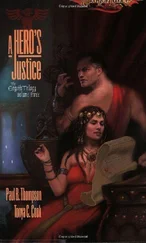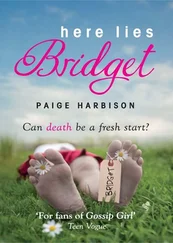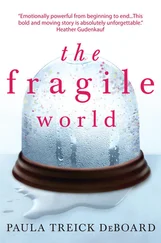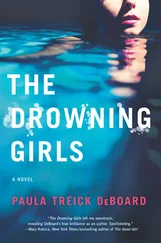I followed a directional sign for the press conference and hurried down hallways and around corners before arriving outside the door, where another line had formed. A woman at the front, officious in a burgundy blazer, was checking press credentials. My heart pounded. Each time one of the double doors swung open, I caught a glimpse of the people collected there, accompanied by their cameras and cords and laptops and phones.
Then I was at the front of the line, and the woman in the blazer was blocking my entry, shoulder pads increasing her bulk. “Show your credentials, please.”
I reached in my purse for my wallet. “I don’t have—”
“I can’t let anyone in without appropriate credentials,” the woman said, more loudly than necessary. She was a head shorter than me, but her voice carried enough authority to make up for it.
“I’m not a member of the press, but I have to get in there,” I pleaded. I flipped my wallet open to a picture of my face—my name, address, vital statistics. Behind my Rhode Island license was my old one, a Connecticut ID with my younger face, my maiden name.
She frowned at me, waving two others past, identification badges hanging from their necks. “Ma’am, I have to ask you to step to the side. This conference isn’t open to the general public.”
I gestured again with my open wallet, pointing desperately to my name. “I’m family,” I said finally, catching the attention of those waiting behind me. I could feel their ears perk up, the unsubtle uptick of their interest. Did she say she was family?
Finally, this got me her attention, in the form of slow blink and unabashed pity. “Go,” she hissed, and I darted past before she could change her mind.
* * *
I stayed close to the back wall, trying to find a vantage point but at the same time be invisible. At the front of the room was a podium with a microphone, and off to the side was the Connecticut state flag, its baroque shield visible on a blue background. A woman was at the microphone, saying Megan’s name.
And then she was on the stage, instantly recognizable despite the years between us. I gasped, catching the back of a folding chair for balance. She was more polished than I remembered, but then, she used to wear oversize sweatshirts and thrift store jeans, which either fit her waist or her inseam, but never both at once. She had been a teenager then, brash and funny and lovable and so different from me. The person at the microphone, of course, was thirty-five.
Still, I remembered her in our shoebox of a dorm room, drinking from my contraband bottle of schnapps.
I remembered her on our bike rides, the sun so bright on her hair that it looked like her head might, at any moment, burst into flame.
I remembered her that New Year’s Eve, wearing a borrowed dress, her feet wedged into my too-tight shoes.
And I remembered her as she’d looked that last night, sitting on the edge of my bed, hugging her arms to her chest.
Her voice now was shaky at first, as if from underuse. “I’m here today to right an old wrong,” she began. Camera shutters clicked, and she blinked away the flashes that momentarily blinded her. “I’m here today to tell you what happened to me fourteen years ago, and why, for far too long, I’ve kept silent.”
It was too much all of a sudden, and I bent down, hands on my knees, struggling for breath like a kid beaned in the stomach with a playground ball. Fourteen years. That was a long time to live a lie.
1998–1999
Megan
For years, my parents kept the painting I made in kindergarten on our refrigerator, secured by a free magnet from a local insurance company. The painting featured three stick figures so out of proportion they dwarfed the house and the tree in the background, and so tall they almost bumped against the giant yellow orb of the sun. Dad, Mom and me. That was my world, and we were happy. Not that Dad never raised his voice, not that Mom never nitpicked, not that I never misbehaved, not that we ever had any money. But still—happy. We had dinner together most nights, went to a movie once a month and ate out of the same giant tub of buttered popcorn, licking our fingers between handfuls. It was the sort of happiness that was so uncomplicated, I figured it would last forever.
Dad’s diagnosis came during my senior year in high school, and it stunned him, immediately, into submission. He seemed determined to live out his days in his recliner in front of TV Land and Nick at Nite, catching up on all the shows he’d missed during years of ten-hour workdays at one job site or another. That was when we still pronounced mesothelioma with hesitation, before we grew used to hearing it on television commercials, the symptoms filling the screen in a neat list of bullet points: chest pain, coughing, shortness of breath, weight loss. Dad had inhaled tiny asbestos fibers day after day and year after year, and those fibers had become trapped in his lungs like dust in a heating vent. The poor man’s cancer, he called it sometimes, because mesothelioma affected people who worked construction, who served as merchant marines.
Maybe because we didn’t know how to talk about what was happening, what would happen within twelve to eighteen months, according to the specialist in Kansas City, it was easier for Mom and me to join Dad in front of the television in our family room, listening to Sergeant Schultz claim he knew nothink! and laughing along as the POWs plotted their elaborate schemes, always a few steps ahead of the enemy. Our world had narrowed to this space with Dad’s coughs hanging in the air between us.
Before his diagnosis, Dad had trapped a garter snake in the backyard, and we kept it inside a terrarium filled with sand and rocks and a fake hollowed-out log from the pet store. We named the snake Zeke, and he was more Dad’s pet than mine, although once Dad became sick, it was my job to provide for Zeke’s general well-being and happiness.
Once a week, I bought a mouse at the pet store on my way home from school and transported it across town in my thirdhand Celica, the paper carton on the passenger seat jerking with sudden, frantic motions. At home, I dropped the mouse into the cage, and Dad and I watched until the poor thing was only a tumor-like hump in Zeke’s gullet. “Look at him go!” Dad would wheeze in his new, strange voice, with all the solemnity of someone announcing a round of golf.
All I could think was that it was too bad it had to be that way, that something had to die so something else could live. That was the lesson of biology textbooks and visits to the Kansas City Zoo, but it wasn’t so easy to watch it play out in our living room.
* * *
In high school, I had been one of the girls who was going somewhere. I’d ignored the boys in my class, sidestepping their advances at parties, letting the nerdy boys take me to prom. I was smart enough, one of the kids who always had the correct answer, even if I wasn’t the first to raise my hand. With my curly blondish hair and D-cup breasts, physical traits I’d inherited from my mom, I was pretty enough, too—and this was a near-lethal combination in Woodstock.
No matter what, I’d always promised myself, I wasn’t going to get trapped here.
Up until Dad’s diagnosis, I’d been planning to start Kansas State in the fall. But that spring and into the summer, I threw away the envelopes unopened—housing information, scholarship notifications. “Maybe next year,” Mom would say, her fingernails raking over the knots in my spine. We didn’t stop to talk about what that meant or what it would look like when the three-pronged family on the refrigerator was reduced to only two. After graduation, I got a job at the Woodstock Diner, a twenty-four-hour joint off I-70 that catered to truckers and the occasional harried families that spilled out of minivans, everyone passing through on their way to somewhere else. Always, they thought they were funny and clever, that they were better than this town and better than me. But in my black stretchy pants and white button-down, I was different from the Megan Mazeros I’d been before—honor student, soccer halfback, Daddy’s girl. Here I was witty and hardened as one of the veterans, old before my time.
Читать дальше
